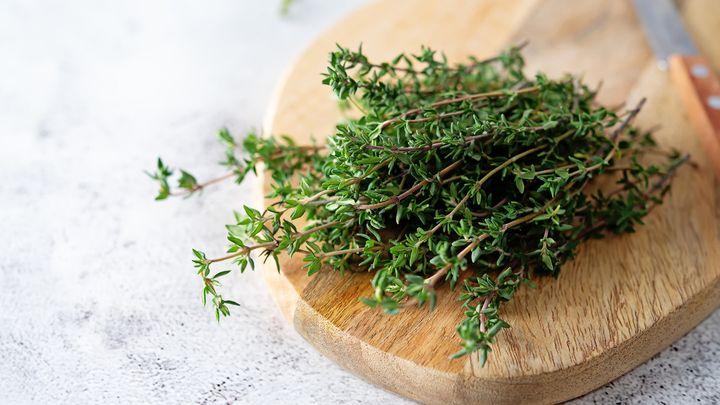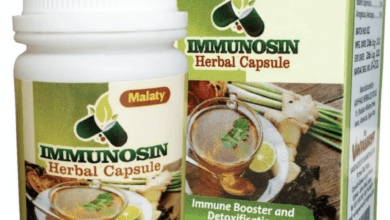
Top 15 Medicinal Properties of Herbs in Nigeria
Medicinal Properties of Herbs – Nigeria possesses a vast wealth of indigenous herbs that have been used in traditional medicinal practices for centuries. Many local herbs contain potent bioactive compounds and phytochemicals that provide scientifically validated therapeutic and health benefits. This extensive article will explore 15 key Nigerian herbs with remarkable medicinal properties supported by research.

Everyday Health
The Top 15 Medicinal Properties of Herbs in Nigeria Are:
1. Moringa oleifera(Moringa)
First and foremost, moringa is considered a superfood and miracle plant for its highly nutritious leaves and pods which are rich in essential vitamins, minerals and beneficial plant compounds. Moringa contains Vitamin A, Vitamin B1 (thiamine), Vitamin B2 (riboflavin), Vitamin B3 (niacin), Vitamin B6, folate, Vitamin C (ascorbic acid), calcium, potassium, iron, magnesium, phosphorus and zinc. The leaves are also a significant source of protein, beta-carotene, phenolic acids, flavonoids and isothiocyanates. 200 Romantic Love messages
👉 Relocate to Canada Today!
Live, Study and Work in Canada. No Payment is Required! Hurry Now click here to Apply >> Immigrate to CanadaFurthermore, moringa demonstrates strong antimicrobial, antioxidant, anti-inflammatory, anti-diabetic, analgesic, anti-cancer and chemopreventive properties due to bioactive compounds like quercetin, gallic acid, kaempferol and chlorogenic acids. The isothiocyanate moringinine possesses potent antibacterial and hypotensive effects. By reducing oxidative stress and inflammation, moringa helps protect organs like the heart, liver and kidneys from disease damage and dysregulation.Medicinal Properties of Herbs
Additionally, moringa extracts show anti-tumor and radiosensitizing actions against various cancers like liver, lung, colorectal and breast cancers in lab studies by inhibiting cancer growth factors and inducing apoptosis. It also mitigates chemotherapy and radiotherapy side effects. The chemopreventive, hepatoprotective, cardioprotective, renoprotective and neuroprotective effects have been exhibited in human and animal studies as well.
Moreover, moringa enhances wound healing by stimulating fibroblast, collagen and granulation tissue proliferation. It acts as an antipyretic to lower fevers and reduces joint pain and severity in arthritis. Moringa helps balance hormones and cholesterol levels too. It improves digestion and gut health through its antibacterial and antiulcer effects. Also, moringa alleviates iron deficiency, anemia and sickle cell disease symptoms by elevating hemoglobin levels. Information Guides In Nigeria
Overall, the wide spectrum of health benefits offered by bioactive compounds make moringa an exceptionally valuable herb in Nigeria and globally. Every part of the plant from leaves to seeds and flowers provide medicinal value to optimize health.
Read Also: Top 15 Watermelon & Health-Promoting Properties
2. Garcinia kola(Bitter kola)
First and foremost, bitter kola contains antibacterial, antiviral, anti-inflammatory, antioxidant, hepatoprotective, bronchodilatory, digestive stimulant and weight loss promoting compounds like biflavonoids, kolaviron, vitamin C and phytosterols that account for its potent medicinal effects.
Furthermore, the rich antioxidant content helps increase the body’s defense against infectious diseases. Garcinia kola exhibits anti-malarial effects against chloroquine-resistant strains by chelating with heme to prevent crystallization of hemozoin in malaria parasites. Bitter kola demonstrates broad spectrum antimicrobial activity against numerous strains like E. coli, S. aureus and C. albicans according to studies.
Additionally, the bronchodilatory compounds expand respiratory airways to relieve asthma symptoms. Bitter kola improves lung function in patients with obstructive airway diseases. The anti-inflammatory phytochemicals also combat conditions like laryngitis, pharyngitis and bronchitis marked by inflammation. Kolaviron protects liver cells from toxins and damage.Medicinal Properties of Herbs
👉 Relocate to Canada Today!
Live, Study and Work in Canada. No Payment is Required! Hurry Now click here to Apply >> Immigrate to CanadaMoreover, bitter kola provides gastroprotective effects that combat issues like gastritis, ulcers and diarrhea. The stimulating compounds increase gastric juice secretion to aid digestion, absorption and gut motility. Garcinia kola also exhibits analgesic and antipyretic properties that relieve pains and aches.
Finally, bitter kola boosts immunity, fights fatigue and enhances weight loss by suppressing appetite, increasing fat metabolism and regulating blood glucose levels. The caffeine content boosts energy as well. Simply chewing bitter kola helps relieve cough and throat troubles. The phytochemicals and vitamins in Garcinia kola make it a highly beneficial Nigerian herb.
Read Also: 7 Steps To Buying Properties In Lagos
3. Vernonia amygdalina (Bitter Leaf)
First and foremost, bitter leaf provides biologically active anti-infective, anti-diabetic, anti-malarial, anti-cancer, hepatoprotective, immunostimulating, anti-inflammatory, analgesic and cholesterol lowering phytochemicals like sesquiterpene lactones, steroid glycosides, flavonoids and saponins. Jamb Result
Furthermore, extracts demonstrate antibacterial activity against drug resistant strains like S. aureus and E. coli. The potent antioxidants, vitamins and minerals protect cells from oxidative stress and free radical damage. Bitter leaf exhibits chemopreventive effects against breast and cervical cancers as per studies.
Additionally, bitter leaf helps manage diabetes by improving glucose tolerance, increasing insulin secretion and sensitivity. The active compounds synergistically aid proper blood sugar regulation. As a result, bitter leaf extracts help manage complications like nephropathy, neuropathy and retinopathy associated with chronic hyperglycemia.
Moreover, experimental studies confirm the antimalarial benefits of standardized Vernonia amygdalina leaf extracts against chloroquine-resistant strains by reducing parasitic growth. Clinical trials also demonstrate faster parasite clearance and fever resolution in malaria patients treated with bitter leaf extracts versus placebo.
Finally, bitter leaf helps lower cholesterol, stimulate bile production to aid fat digestion and protect the liver from toxins and free radical damage – thereby improving lipid profiles and liver function. While more human research is needed, the science-backed benefits make Vernonia amygdalina a valuable traditional herb in Nigeria.
Read Also: 20 Most Popular Medicinal Plants in Nigeria and Their Uses
4. Ocimum gratissimum(Scented Leaves)
First and foremost, scented leaves contain beneficial bioactive compounds like eugenol, thymol, caffeic acid derivatives, tannins, flavonoids, phytol and essential oils that provide antioxidant, antimicrobial, anthelmintic and immunostimulatory medicinal properties.
Furthermore, extracts of Ocimum gratissimum demonstrate free radical scavenging activities that protect against cellular damage, aging and mutagenesis according to studies. The essential oil exhibits antibacterial effects against numerous drug-resistant strains like E.coli, P. aeruginosa and K. pneumoniae. Research shows aqueous and ethanolic extracts have inhibitory action against fungal species too.
Additionally, the eugenol demonstrates pain-relieving effects by inhibiting pain mediators like prostaglandin E2. Ocimum gratissimum extracts help lower respiratory problems, diarrhea, vomiting, stomach ache and other gastrointestinal disorders as per ethnopharmacological applications.
Moreover, Ocimum gratissimum exhibits chemopreventive effects against prostate cancer development and progression in studies. It also demonstrates anti-sickling effect in those with sickle cell disease. Ocimum gratissimum extracts stimulate production of antibodies and T-cells to boost immunity against infections as well. It helps treat parasitic worms too.
Finally, scented leaves display hypoglycemic and hypolipidemic effects to help manage diabetes. Ocimum gratissimum regulates pancreatic beta cell function and may moderate oxidative stress in diabetic patients as evidenced in lab studies. The wide range of therapeutic properties make this commonly used Nigerian herb a medicinal treasure. Palladium Group Recruitment
Read Also: Best 15 Immune-boosting fruits for HIV Patients
5. Irvingia gabonensis (Wild Mango)
First and foremost, wild mango contains bioactive lipids like beneficial sterols along with antioxidants like vitamin C that contribute to its anti-inflammatory, antimicrobial, gastroprotective, anti-diabetic, analgesic, cardioprotective and hepatoprotective medicinal properties.
Furthermore, the antibacterial effects help treat diarrheal and other infectious diseases according to studies. Irvingia gabonensis bark extracts demonstrate antimalarial activity against chloroquine-resistant strains of plasmodium falciparum. The potent antioxidant compounds protect cells from damage.
Additionally, the high soluble fiber content aids weight loss by suppressing appetite hormones like ghrelin and enhancing satiety. Human trials show Irvingia gabonensis supplementation significantly reduces body fat and weight in overweight individuals by regulating lipid metabolism.
Moreover, extracts of Irvingia gabonensis help reduce hypertension, high cholesterol, atherosclerosis progression and incidence of ischemic heart disease. The cardioprotective effects are linked to lipid regulation. Irvingia gabonensis also helps improve glycemic control in diabetics by moderating blood sugar spikes.
Finally, the anti-inflammatory compounds alleviate rheumatism pain and arthritis while the hepatoprotective effects protect the liver from alcohol and drug induced toxicity. Irvingia gabonensis demonstrates broad medicinal utility through its wide range of bioactive constituents. More human studies will help translate the pharmacological benefits.
Read Also: Top 15 Locally Sourced Ingredients for Natural Hair Growth in Nigeria
6. Dioscorea bulbifera (Potato)
First and foremost, air potato exhibits antibacterial, antifungal, anti-diabetic, analgesic, anti-inflammatory, antioxidant and immunomodulatory medicinal properties owing to bioactive compounds like phenanthrene, diosbulbin and anthraquinones.
Furthermore, in vitro studies demonstrate potent broad spectrum antimicrobial effects against disease causing gram positive and gram negative bacterial strains as well as fungal species including cytotoxic drug resistant forms. Dioscorea bulbifera exhibits synergistic effects when combined with certain antibiotics too.
Additionally, the tubers and leaves exhibit antihyperglycemic, antidyslipidemic and antioxidant effects that help manage diabetes and its complications. Animal studies show Dioscorea bulbifera extracts significantly decrease oxidative stress and regulate insulin, glucose and glycogen levels in diabetic rats.
Moreover, Dioscorea bulbifera demonstrates anti-cancer potential against cervical, prostate, breast and pancreatic cancers in preliminary lab studies. Crude extracts suppress tumor proliferation by inducing apoptosis and inhibiting angiogenesis. Diosbulbin B shows the most potent anti-tumor effects.
Finally, the analgesic compounds help relieve pain while the anti-inflammatory effects reduce swellings and arthritis. The immunomodulating bioactives elevate antibody production and disease fighting white blood cell activity. Dioscorea bulbifera makes for a highly versatile medicinal herb in Nigeria. Further research can help translate these pharmacological benefits. 200 Romantic Love messages
Read Also: Top 15 Cholera & Rehydration Therapy, Herbal Teas in Nigeria
7. Prunus Africana (African cherry)
First and foremost, bark extracts from the African cherry contain antioxidant, anti-inflammatory, antimicrobial and analgesic phytochemicals including phenols, phytosterols and ferulic acid which account for its medicinal effects and ethnomedicinal usage.
Furthermore, bark decoctions and formulations demonstrate anti-malarial, anti-pyretic, anti-inflammatory and immunomodulatory effects according to research. Compounds like caffeic acid, quercetin and kaempferol help manage fever, pain and malaria symptoms through their bioactivities.
Additionally, standardized bark extracts help treat benign prostatic hyperplasia and related lower urinary tract symptoms as evidenced in multiple human trials. The extracts improve urological function and flow measures while limiting prostate enlargement.
Moreover, formulations help elevate low sperm quality in infertile men by increasing sperm count, motility and morphology over 3-6 months. It also elevates testosterone levels while lowering creatinine and uric acid. Prunus africana bark products may aid male reproductive health.
Finally, the antimicrobial effects help fight skin, oral and gastrointestinal infections. The anti-inflammatory, antioxidant, cytoprotective compounds also help treat stomach ulcers and canker sores. While more clinical research is required, Prunus africana appears a promising herbal remedy. Alliance for International Medical Action Recruitment
Read Also: Top 15 Antioxidant-rich Fruits for People Living with HIV
8. Adansonia digitata(Baobab leaves)
First and foremost, baobab leaves, pulp and seeds exhibit antioxidant, anti-inflammatory, antimicrobial, antiviral, antidiarrheal, antiasthmatic and analgesic bioactivities largely attributed to key constituents like vitamin C, polyphenols, flavonoids, sterols and saponins.
Furthermore, the leaves demonstrate analgesic, anti-pyretic and immune-enhancing effects. Baobab leaf decoctions are traditionally used to manage fever. The fruit pulp exhibits anti-diarrheal activity and protects against gastrointestinal pathogens like E.coli. Research shows both pulp and seeds help strengthen the gut mucosal immune system.
Additionally, antibacterial, antifungal and antiviral effects of Adansonia help treat varied skin and respiratory conditions. Baobab extracts promote wound closure and re-epithelialization through tissue rebuilding qualities. The anti-inflammatory compounds alleviate joint and muscle pain from arthritis or injury.
Moreover, experimental studies indicate Adansonia digitata exhibits hepatoprotective, neuroprotective, renal-protective and hematopoietic effects which may help prevent organ toxicities and anemia. The antioxidant compounds limit cellular damage and aging. Baobab demonstrates chemopreventive potential against cancers like colon carcinoma too. Top 15 Health Benefits of Eating Oranges
Finally, baobab leaves and fruit exhibit anti-asthmatic and antitussive effects. Bark extracts help manage malaria and reduce parasitemia. The vitamin C content boosts immunity against infections. Baobab’s diverse medicinal properties make this iconic tree beneficial in both food and medicine.
9. Hibiscus sabdariffa (Hibiscus flowers)
First and foremost, antioxidant-rich hibiscus flowers and calyces contain beneficial bioactives like anthocyanins, polyphenols, flavonoids and polysaccharides that provide anti-hypertensive, anti-cancer, anti-diabetes, nephroprotective, anti-urolithiasis and hepatoprotective properties with various applications in food and medicine.Good morning my love messages
Furthermore, being rich in anthocyanins which confer its deep red color, hibiscus exhibits anti-hypertensive activity. Multiple human trials confirm hibiscus tea helps lower elevated systolic and diastolic blood pressure in prehypertensive and mildly hypertensive adults by up to 10 mm Hg over 4-6 weeks.
Additionally, hibiscus demonstrates anti-diabetes effects like improving insulin sensitivity, glucose tolerance and lipid metabolism according to studies. The bioactive protocatechuic acid helps regulate carbohydrate metabolizing enzymes to lower blood glucose levels and complications in diabetic rats.
Moreover, hibiscus extracts display chemopreventive and antitumor potential against different cancer cells like leukemia, gastric, liver and skin cancer cells as evidenced by lab research. The polyphenols induce apoptotic cancer cell death. However, more clinical research is needed to confirm anti-cancer benefits.
Finally, being rich in Vitamin C and antioxidants, hibiscus enhances immunity against bacterial and viral infections. It helps lower uric acid levels which alleviates gout symptoms. In conclusion, science validates traditional Nigerian use of colorful hibiscus calyces to brew flavorful, health-protective beverages.
10. Aloe Barbadensis miller (Aloe vera)
First and foremost, succulent aloe leaves contain a clear gel rich in over 200 bioactive compounds including antioxidants, vitamins, minerals, enzymes, amino acids, fatty acids, lignins and anthraquinones which confer its diverse medicinal effects. Top 15 States with Hydropower Potential in Nigeria
Furthermore, aloe gel demonstrates antimicrobial, antifungal and antiviral activities against numerous drug resistant pathogens like P. aeruginosa, S. aureus and H. pylori as confirmed in vitro. The anthraquinones eliminate infections while polysaccharides block bacterial binding and entry. This helps treat gastrointestinal, skin and oral infections.
Additionally, the anti-inflammatory, immunomodulating and wound healing biomolecules like aloctins, aloesins and acemannan promote faster healing and alleviate pain and swelling in burns, cuts, eczema and haemorrhoids when applied topically. The gel provides a protective moist environment.
Moreover, consuming aloe juice helps reduce gastrointestinal inflammations including ulcerative colitis and keeps gut microbiota balanced. Aloe enhances cellular regeneration to heal stomach ulcers and reduce acid reflux symptoms. The high vitamin C content boosts immunity against illnesses.
Furthermore, aloe promotes heart health through anti-inflammatory, anti-oxidative, anti-platelet and hypolipidemic effects that help manage risk factors like elevated cholesterol. The beta-sitosterol lowers blood lipids. Aloe helps maintain normal blood sugar in diabetics by enhancing glucose metabolism and insulin activation too. JAMB Portal
Finally, aloe exhibits radio-protective, hepatoprotective, reno-protective, neuroprotective and chemopreventive antioxidant effects that help combat oxidative stress underlying chronic diseases. However, large-scale human studies are still needed to further establish clinical efficacy and safety.
11. Chlorella(Seaweed)
First and foremost, chlorella is a nutrient-dense blue-green algae that contains a wealth of beneficial vitamins, minerals, amino acids, fatty acids and antioxidants like phenolics, chlorophylls and carotenoids that provide therapeutic value.Medicinal Properties of Herbs
Furthermore, chlorella offers antimicrobial activity against harmful bacteria responsible for respiratory infections, skin problems and stomach ulcers like Hpylori and P.aeruginosa. It also helps eliminate intestinal parasites and toxins from the body.
Additionally, studies indicate chlorella regulates lipid metabolism to lower cholesterol, triglyceride levels and blood pressure. The niacin, fiber and plant sterols help maintain healthy cholesterol levels. Chlorella also displays anti-diabetic effects.
Moreover, scientific research reveals chlorella exhibits chemopreventive and anti-cancer properties by impeding tumor growth, initiation and proliferation. It suppresses chronic inflammation that fuels cancer progression as well. Chlorella intake limits toxicity of cancer drugs.
Furthermore, being rich in antioxidants like chlorophyll, carotenoids and vitamin C, chlorella protects the body from oxidative stress and prevents premature aging. It helps lower inflammatory biomarkers like TNF-alpha, CRP which underlie age-related chronic disorders.
Finally, chlorella enhances detoxification processes to remove heavy metals like lead and mercury, pesticides and toxins from the body. It protects organs like the liver and kidneys from toxicity while strengthening immunity, making it a superfood.
12. Zingiber officinale (Ginger)
First and foremost, pungent ginger root contains hundreds of compounds and oils like gingerol, shogaol, zingerone and geraniol that provide analgesic, anti-inflammatory, anti-nausea, antioxidant, antimicrobial and anti-tumor phytomedicinal properties with a high safety profile.Medicinal Properties of Herbs
Furthermore, ginger effectively alleviates nausea and vomiting related to anesthesia, chemotherapy, pregnancy and motion sickness. Ginger prevents serotonin release in the gut and anti-cholinergic activity which reduce nausea. Its antispasmodic compounds relax the stomach. This anti-emetic effect is supported by abundant clinical research.
Additionally, ginger exhibits potent anti-arthritic effects due to its ability to inhibit pro-inflammatory compounds like COX, LOX and cytokines which cause joint swelling, tenderness and damage in rheumatoid and osteoarthritis. Multiple human studies demonstrate its strong pain relief.
Moreover, ginger displays antimicrobial action against food-borne bacterial pathogens like E.coli, S.aureus and Salmonella as well as fungal and parasitic infections. The gingerol disrupts microbial cell walls and suppresses virulent activity. This broad spectrum antimicrobial action validates ginger’s traditional use for treating infections.
Furthermore, research reveals ginger exhibits anti-cancer and chemopreventive properties by lowering inflammatory mediators and blocking cell proliferation in various cancers like colorectal, pancreatic, breast, skin and prostate cancers. The 6-shogaol induces cancer cell death and prevents metastasis. However, human studies are still limited.
Moreover, the rich antioxidant compounds like gingerols and shogaols suppress free radicals and oxidative stress which are underlying factors in numerous chronic diseases. Ginger inhibits LDL oxidation, lowers elevated cholesterol and protects the liver, brain, kidney and heart from oxidative damage as evidenced by animal and limited human studies.
Additionally, the powerful anti-inflammatory phytochemicals like 6-paradol help relieve pain and inflammation associated with rheumatism, osteoarthritis and fibromyalgia when taken orally by inhibiting key pathways like Nuclear factor kappa B (NF-kB) and reducing cytokine production.
Finally, other medicinal effects of ginger include supporting healthy digestion by increasing the motility of the gastrointestinal tract. Ginger also exhibits limited anti-diabetic properties by lowering chronic high blood sugar, cholesterol and insulin resistance in diabetics. More human research will help translate these health benefits.Medicinal Properties of Herbs
13. Curcuma longa (Turmeric)
First and foremost, the key bioactive polyphenol in turmeric called curcumin or diferuloylmethane provides exceptional anti-inflammatory, antioxidant, antimicrobial, immunomodulating, hepatoprotective, anti-diabetic, anti-asthmatic, anti-depressant and anti-cancer medicinal properties that have been confirmed by human research studies.
Furthermore, curcumin exhibits comparable or even stronger anti-inflammatory activity relative to pharmaceutical drugs like diclofenac, ibuprofen, naproxen without the gastrointestinal side effects. It inhibits key inflammatory enzymes, cytokines and NF-kB to reduce pain, arthritis, colitis and auto-immune conditions.
Additionally, the potent antioxidant effects of curcumin protect cells against free radical damage, delay aging, reduce heavy metal toxicity and counteract cognitive deficits in diseases like Alzheimer’s. Curcumin crosses the blood-brain barrier to improve cognition, depression and OCD symptoms as evidenced in human studies.
Moreover, curcumin aids prevention and treatment of metabolic disorders like obesity, hyperlipidemia, diabetes and associated complications like neuropathy, nephropathy and vasculopathy as seen in clinical data. It enhances AMP kinase activity and insulin release for better glycemic control.
Furthermore, curcumin exhibits immunomodulating capacity by stimulating antibody production, immunity-boosting T regulatory cells, macrophage and natural killer cell activity to fight infections, autoimmunity and cancer as confirmed in human trials. The antimicrobial effects combat bacteria and parasites too.
Moreover, curcumin acts against initiation, proliferation, invasion and metastasis of varied cancers like colorectal, pancreatic, prostate, breast and lung cancers. The chemopreventive and radio-sensitizing properties curb tumor growth and prevent recurrence. Though promising, more clinical data is required.
Additionally, turmeric and curcumin aid rheumatoid arthritis, chronic anterior uveitis, irritable bowel disease, peptic ulcers, psoriasis, allergy, hyperlipidemia, atherosclerosis, depression, neurodegenerative diseases, cystic fibrosis and other chronic conditions according to clinical studies thus making them valuable therapeutic options.Medicinal Properties of Herbs
Finally, turmeric has high safety as evidenced by thousands of years of dietary consumption in Nigeria and India. The plethora of human study data continues to grow supporting turmeric’s medicinal efficacy and its potential as a low-cost, safer adjunct and nutraceutical to manage most diseases.
14. Echinacea (Purple coneflower)
First and foremost, echinacea herb contains bioactive polysaccharides and phytochemicals like alkamides, caffeic acid and chlorogenic acid that provide potent immunomodulating, anti-viral and anti-inflammatory pharmacological properties. The constituents vary across species like E. purpurea, E angustifolia and E. pallida.
Furthermore, echinacea demonstrates strong immune enhancing activity against viral infections like influenza, common cold, herpes and respiratory infections by increasing neutrophil and natural killer cell counts as well as cytokine production which boost pathogen activity. Echinacea relieves symptoms like fever, sore throat and sneezing while shortening illness duration.
Additionally, echinacea exhibits anti-inflammatory effects by inhibiting enzymes like hyaluronidase which break down connective tissue and exacerbate inflammatory response. This helps relieve pain, redness and swelling associated with chronic conditions like arthritis, gingivitis and respiratory ailments when used orally.
Moreover, echinacea applied topically speeds up wound healing through its antimicrobial, tissue regenerating, and analgesic effects. It inhibits bacterial growth in wounds and stimulates formation of connective tissue. Echinacea extracts reduce healing time in burns, skin abrasions and psoriasis lesions.
Furthermore, echinacea demonstrates anti-aging antioxidant effects against UV radiation-induced skin damage. It boosts collagen synthesis and skin hydration while suppressing enzymes that degrade collagen and hyaluronic acid. Using echinacea creams improves skin elasticity and firmness.
Finally, echinacea exhibits anti-cancer immunostimulation, anti-proliferative and radiation protective effects against cancers like leukemia, lung cancer and stomach cancer. Alkamides induce apoptosis and cell growth arrest. However, human data is still limited and mixed regarding anti-cancer efficacy.
15. Garlic
First and foremost, garlic contains a range of potent bioactive sulfur compounds like allicin, ajoene, S-allylcysteine, diallyl disulfide and others that confer antimicrobial, antihypertensive, anti-thrombotic, hypolipidemic, hypoglycemic, antioxidant, immunostimulant, hepatoprotective and chemopreventive medicinal properties.
Furthermore, garlic exhibits broad spectrum antibacterial, antiviral, antifungal and antiparasitic effects against drug-resistant strains including H. Pylori, E.Coli, S.Aureus, C. Albicans and Leishmania. Allicin diffuses into cells and reacts with thiol groups of proteins, inhibiting microbial growth and toxicity. This validates garlic’s traditional use for infections. Medicinal Properties of Herbs
Additionally, numerous human studies confirm garlic’s cardiovascular benefits like lowering blood pressure in hypertensives, decreasing platelet aggregation and enhancing vasodilation. Garlic also reduces cholesterol, triglycerides and atherosclerosis progression – curbing risk factors for heart attacks and stroke.
Moreover, aged garlic extract enhances immunity by stimulating macrophage, NK cell, T-cell and phagocytic activity which helps fight cancers and infections. It also eliminates heavy metals and toxins from the body. Garlic increases good HDL cholesterol as well.
Furthermore, population studies associate increased garlic intake with significantly lower incidence of gastric, colorectal and other cancers. The anti-cancer effects are attributed to bioactives like diallyl sulfide which help prevent DNA damage, inhibit cancer proliferation and induce cancer cell death.
Finally, garlic acts as an anti-diabetic agent by lowering glucose levels and improving insulin sensitivity and secretion. The antioxidant effects of garlic also help heal stomach ulcers, counter liver and kidney damage, relieve arthritis pain and asthma symptoms, making it highly medicinal.Medicinal Properties of Herbs
Conclusion
In summary, Nigeria possesses a wealth of indigenous herbs like moringa, garlic, bitter leaf, aloe vera and turmeric that have traditional and scientifically validated therapeutic properties that help manage and prevent various infectious and chronic conditions.
They contain protective compounds and phytochemicals that provide anti-inflammatory, antimicrobial, anti-diabetic, anti-cancer and immunomodulating effects which support wellness in natural, holistic ways. More human trails are still needed to fully translate their pharmacological potential into clinical practice. However, including Nigerian medicinal herbs into preventative healthcare and daily diets can help boost overall wellbeing.
Check JAMB Result
Check and Confirm: How much is Dollar to Naira








